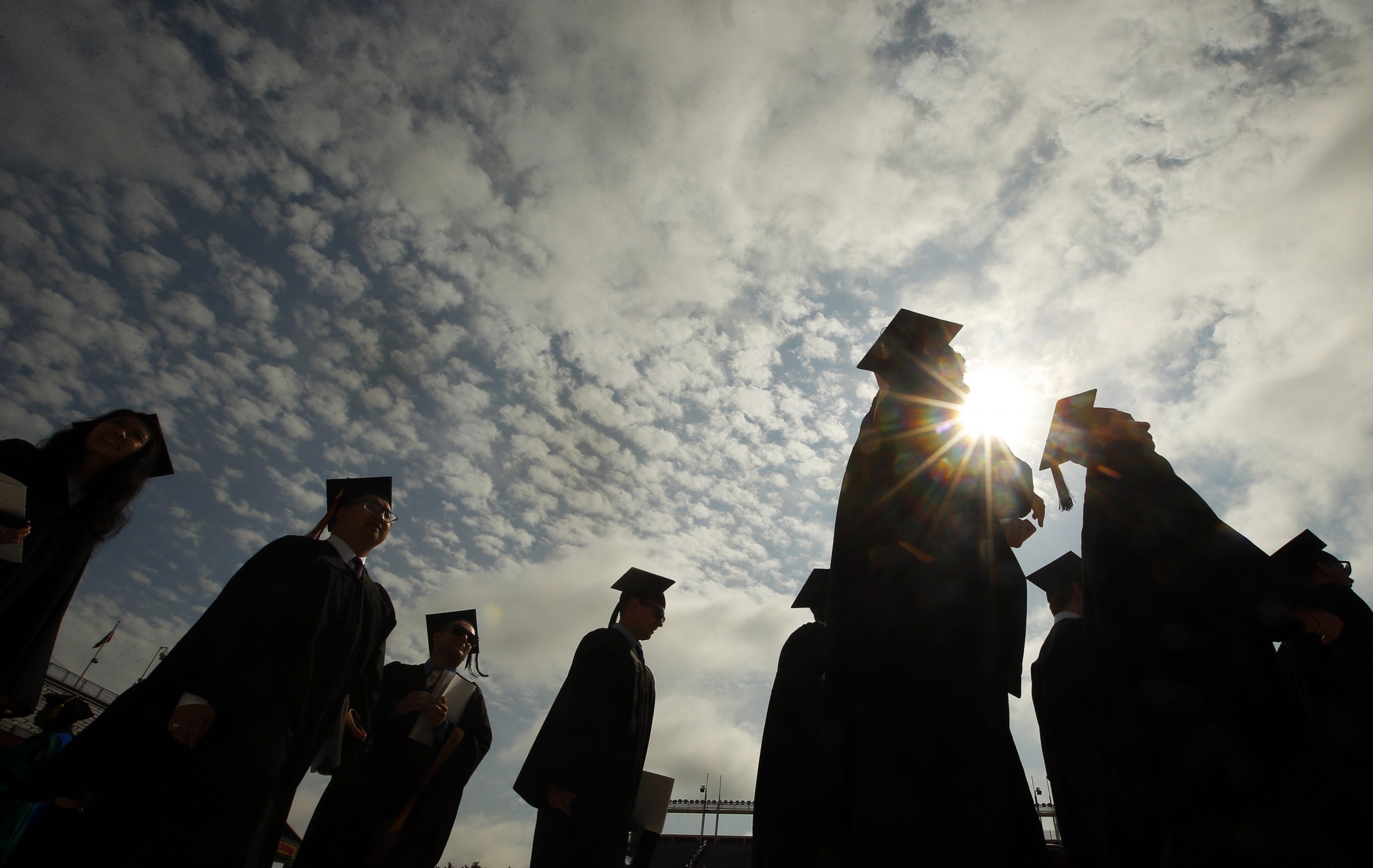
Many studies have explored the advantages of being physically attractive, but new findings show that this upper hand also may apply to college students, as research seems to indicate that those with better looks get higher grades.
In findings presented Monday at the annual meeting of the American Economic Association, and first reported on the website Inside Higher Ed, researchers from Metropolitan State University of Denver claim to have found that female students who are considered attractive received higher course grades and less attractive students received lower ones.
Metropolitan State University associate professors Rey Hernandez-Julian and Christina Peters used data for 77,067 students who attended the university between 2006 and 2011, matching school identification card photographs of students to 1,139,772 course grades.
Thirty-seven participants of different ages and races, who were not students or faculty members at the school, rated the students based on attractiveness, from 1 to 10—a scale familiar to many.
After certain students were dropped from the sample, for reasons such as not having a photo ID, the final sample size consisted of 6,777 students and 168,092 grades.
Hernandez-Julian and Peters found that for in-person courses, female students rated to be more attractive tended to get higher grades, while female students considered less attractive got lower grades.
The paper has not yet been submitted for peer review. However, both authors have been peer-reviewed for previous research.
The researchers considered whether attractiveness was "merely a proxy for other unobservable traits," they wrote in a working paper. For instance, appearing well-groomed could indicate that a person is detail-oriented. But when they compared attractiveness with course grades for students in online courses, whom instructors typically do not see, they found that the attractive students actually got worse grades.
"If there is a productivity component associated with appearance, then those with higher appearance ratings should attain better outcomes, even in situations when they are not being observed," the researchers wrote. However, they added, because that was not the case, the findings suggest that instructors discriminate based on looks.
"It's not like an unattractive student fails a course [because of looks]," Peters tells Newsweek. "It's not making or breaking anyone." Still, she says, "it's disconcerting."
Peters says she and Hernandez-Julian intended to build off previous research regarding attractiveness in the job market. "It happens in all walks of life," she says of discrimination based on appearance.
According to Daniel Hamermesh's 2011 book Beauty Pays: Why Attractive People Are More Successful, a handsome man can make 13 percent more money than a less attractive man. Research has also indicated that attractive professors do better in student evaluations and that attractive people tend to be more happily married.
Hernandez-Julian and Peters wrote that though discriminatory, instructors may not be giving favorable treatment to attractive students in grading but rather in teaching—instructors may simply pay more attention to attractive students, resulting in higher grades.
"The more attractive students do earn higher grades, but these higher grades are actually a result of higher learning," they wrote. "In this case, appearance does produce more learning."
Hernandez-Julian expands on that idea in an email to Newsweek: "Suppose that you have two students both going to office hours for help on an assignment. Because of unconscious biases, a professor may spend more time with the more attractive student. As a result, that student learns more and produces better work, earning a higher grade. If that is the case, the student's appearance is productive because it actually helps the student achieve a higher level of learning."
Hernandez-Julian compares the case to a salesperson who sells more products because customers find him or her more approachable. It's not as if two students "produce identical assignments, and the better-looking one gets a higher grade," he adds.
Students rated "below average" on the attractiveness scale earned on average grades that were 0.067 grade points lower than those considered of "average" attractiveness. For women, that difference was even more, 0.14 grade points lower.
For in-person courses, the data showed that male students' looks tended to matter less than their female classmates' looks. However, for online courses, both male and female students who were considered attractive did not do as well as they would have for in-person courses.
The trends existed regardless of whether the instructor was male or female.
The researchers presented an earlier version of their paper in 2015.
Uncommon Knowledge
Newsweek is committed to challenging conventional wisdom and finding connections in the search for common ground.
Newsweek is committed to challenging conventional wisdom and finding connections in the search for common ground.
About the writer
Max Kutner is a senior writer at Newsweek, where he covers politics and general interest news. He specializes in stories ... Read more
To read how Newsweek uses AI as a newsroom tool, Click here.








